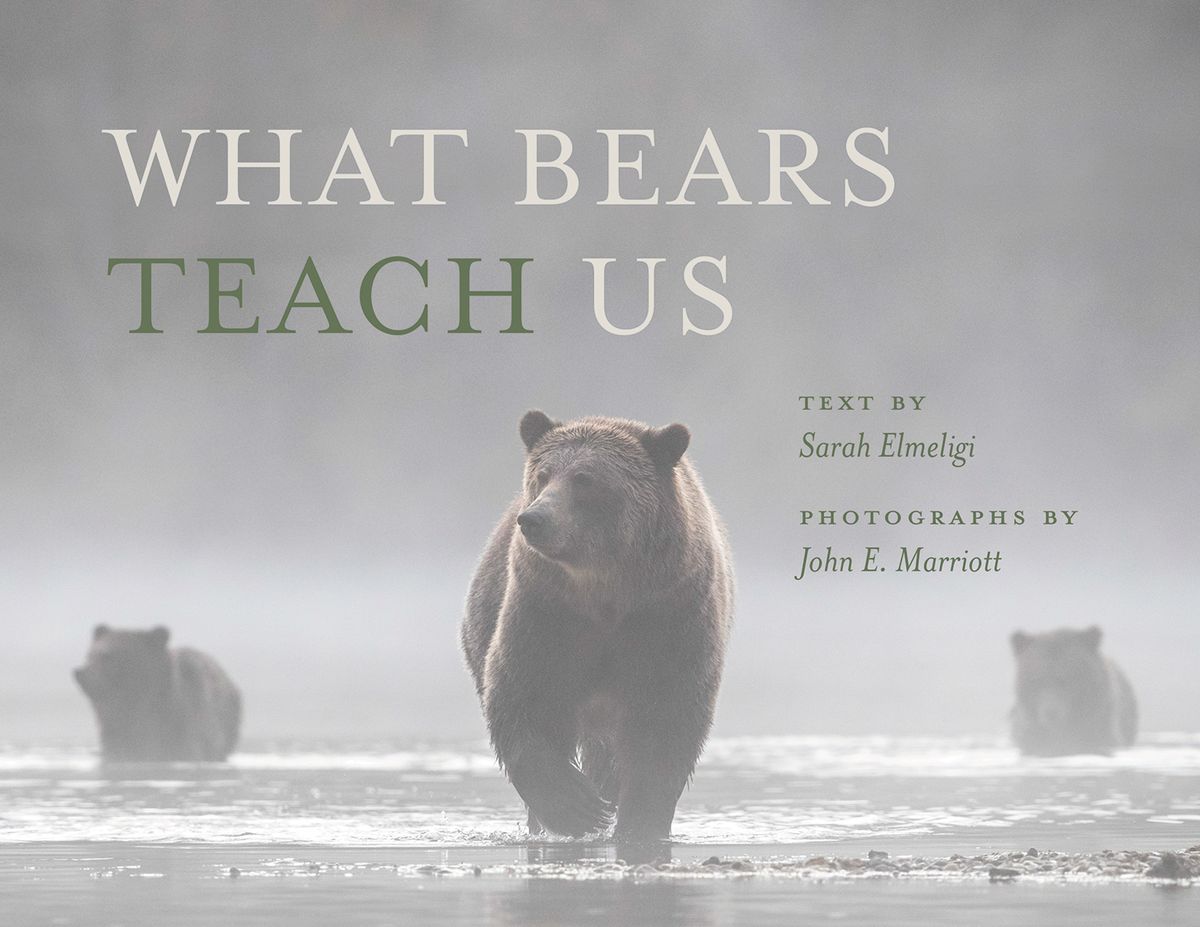Locally Writ: Biologist Sarah Elmeligi examines wisdom of and relationship with bears

The result of more than 20 years of research, biologist Sarah Elmeligi’s “What Bears Teach Us” explores the complex behavioral patterns of bears and examines the dynamics of bear-human interactions from the “ursine” perspective.
Elmeligi will discuss the special wisdom of bears and the value of incorporating the human dimension in understanding the bear–human relationship in a virtual gathering of Northwest Passages Book Club at 7 p.m. Tuesday.
Over the years, whether she was writing her doctoral thesis, an article for a scientific journal or a lighthearted anecdote from the field, Elmeligi found that bears were the best teacher she could’ve asked for in her work.
Writing about bears in so many different ways allowed her the chance to really focus on crafting each piece to reach its target audience.
“When I write something for a bunch of bear biologists, it’s about the data,” she said. “I don’t actually share a lot of the story because … everybody there has their own story.”
The bulk of Elmeligi’s writing in her professional life has been academic. But after years of writing rigorously researched, data-focused papers, the poetry and short stories of her teen years seemed to be calling her name. She wanted to start telling stories again.
While she was writing her thesis, the idea for a more conversational book started forming. She wanted to write a book that would reach beyond the professors on her thesis board.
“Something that you could pick up and flip to a random page and read a few pages with your morning coffee,” she said. “Maybe you’ve learned one new thing – amazing – then just kind of let it sit there in your brain and simmer for a little while.”
Switching between academic and more colloquial writing might seem daunting to some, but to Elmeligi it was just a question of editing and tone.
“Whether I write scientifically or not, I gather my references, I read them, I highlight the pieces that I think are important, and then I start to cobble them together into some kind of draft,” she said. “Then I edit a lot.”
Editing toward certain styles, she said, can prove more difficult than others. The sort of scientifically rigorous writing she had to complete working on her doctoral thesis, “Grizzly Bear Management in Canada’s Rocky Mountain Parks: Balancing Visitor Experience With Bear Habitat Requirements,” felt particularly unnatural.
“That was hard work,” she said. “In writing a thesis, you get your hand slapped as soon as you step outside the data; it’s their job to tell you,” she said, explaining her frustration when data couldn’t account for the phenomena she was seeing in the field.
“So I did feel, as a biologist, a little bit of frustration that I wasn’t able to tell the whole story. I can appreciate that my thesis is scientific, that it needs to be scientifically robust and dependable. And it is, but it nagged at me a little bit that it wasn’t the whole thing.”
Writing “What Bears Teach Us” was a refreshing change because it allowed her to speak more conversationally with readers while still drawing from her years of research and experience in the field.
It was an encounter with a bear in K’tzim-a-deen Inlet of British Columbia’s Great Bear Rainforest that finally pushed her to write the book.
“We were floating around on the boat one day watching this grizzly bear with her two cubs,” she said. “And I just looked at her – it’s this completely peaceful interaction. I’m not stressed, they’re not stressed. In those moments, I feel like I’m really just part of an ecosystem.
“So I looked into this mama grizzly bear’s eyes and, in my head, I’m thinking, ‘What do you want? What do I need to do next?’ ”
And in that moment, Elmeligi said, the bear seemed to be saying, “Tell our story. Tell people how this happens. That you can sit here and watch me with my cubs, totally relaxed … that we’re not just these vicious man-eaters.”
“I mean, obviously, she didn’t say that in English,” Elmeligi said. It was all in her eyes. “So, at the end of the day, I hope that this book serves her.”
To aspiring writers, Elmeligi offered the following advice:
“The best way to be a writer is to actually sit down and write. Even if you just write two sentences, or three pages, or 20 pages, sit down and try to write something every day.”
“What Bears Teach Us” is available at Auntie’s Bookstore. For more information, go to spokesman.com/northwest-passages/events.